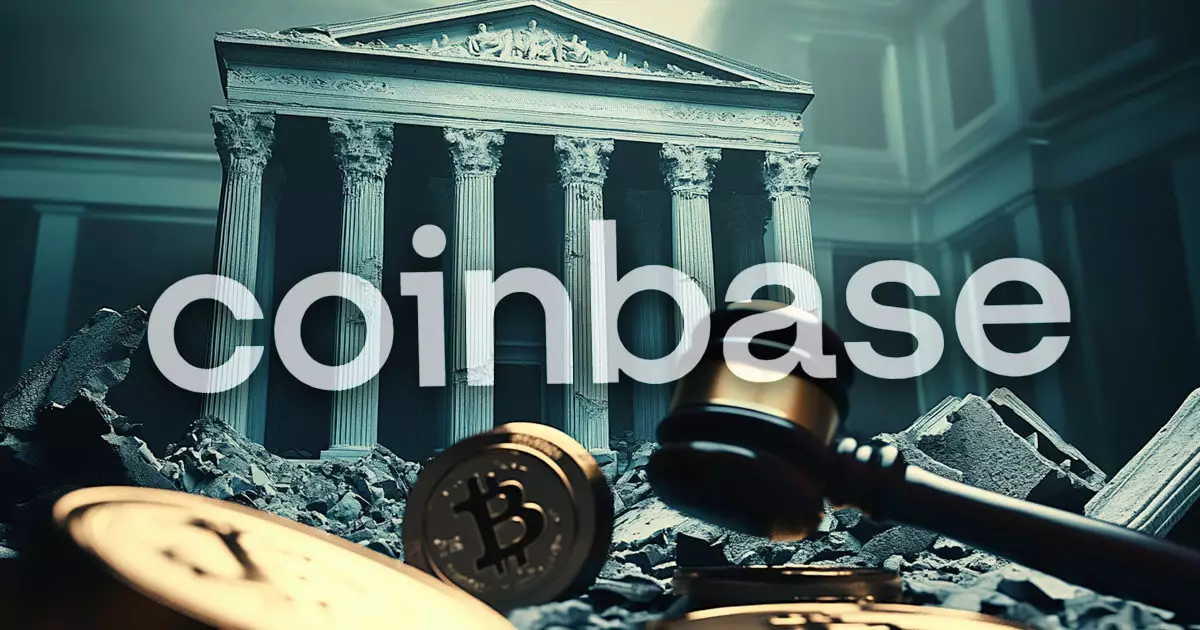The recent ruling by District Judge Katherine Polk Failla in the United States District Court for the Southern District of New York marks a significant moment in the ongoing legal battle between Coinbase and the Securities and Exchange Commission (SEC). On January 7, 2024, Judge Failla granted Coinbase’s motion for an interlocutory appeal, allowing the cryptocurrency exchange to contest the SEC’s allegations while the case continues. The court recognized the necessity for clarity regarding an “important legal issue” pertaining to the nature of investment contracts in the context of cryptocurrency—a point that has stirred considerable debate among legal experts and financial regulators alike.
This interlocutory appeal permits Coinbase to escalate the matter to the Second Circuit of the U.S. Court of Appeals, effectively putting a halt to court proceedings until a decision is reached on whether a direct investment contract is required in this scenario. Such appeals are notable for their rarity, indicating that a trial-level judge sees substantial merit in reviewing the ruling. The outcome could have profound implications not only for Coinbase but for the broader cryptocurrency market as it seeks to navigate the sometimes murky waters of regulatory oversight.
Coinbase has found itself embroiled in legal strife since the SEC filed its lawsuit on June 6, 2023, accusing the firm of offering unregistered securities through its various crypto offerings and staking programs. The SEC’s action illustrates the regulatory body’s increasing scrutiny of cryptocurrency businesses, aiming to assert that many digital assets fall under the same regulations that govern traditional financial securities. This lawsuit serves as a microcosm of a larger struggle, as various stakeholders in the cryptocurrency space grapple with the evolving landscape of regulatory frameworks.
Reactions to Judge Failla’s decision have been overwhelmingly positive among advocates for the cryptocurrency industry. Paul Grewal, Coinbase’s chief legal officer, likened the decision to a referee pausing the game to review a pivotal play, suggesting that this appeal could redefine the playbook for how digital asset transactions are managed under U.S. securities law. Jake Chervinsky, chief legal officer at Variant Fund, referred to the ruling as “huge,” noting that the Second Circuit’s decision on this matter could illuminate whether activities in secondary markets are governed by existing securities laws.
Jeremy Hogan, a legal expert, emphasized that the appeal intersects with similar contentions found in the ongoing Ripple case, effectively underscoring a central question in contemporary crypto law: how do we classify and regulate digital assets? This confluence of legal battles could set precedents that steer the direction of cryptocurrency regulation in the future.
The recent judicial development favoring Coinbase has broader repercussions for the cryptocurrency ecosystem. As Amanda Tuminelli, chief legal officer at DeFi Education Fund, pointed out, the decision to stay proceedings while the appeal unfolds is pivotal. The crypto world is rapidly evolving, and a favorable outcome in this case could provide much-needed clarity and confidence for market participants navigating an uncertain regulatory environment. Overall, this pivotal ruling underscores the importance of legal frameworks in facilitating innovation within the burgeoning field of cryptocurrency.



















Leave a Reply